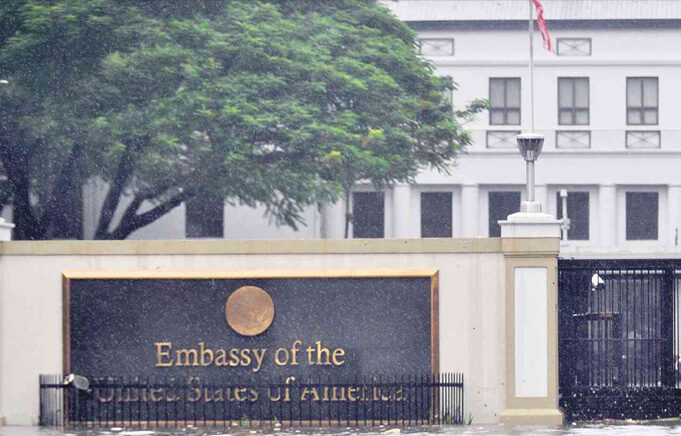US condemns China over Ayungin incident which caused ‘bodily injury’

MANILA, Philippines — United States Ambassador MaryKay Carlson on Monday condemned China over the latest incident in Ayungin (Second Thomas) Shoal which she noted caused “bodily injury” towards Filipino personnel.
“The [United States] condemns the PRC’s (People’s Republic of China) aggressive, dangerous maneuvers near Ayungin (Second Thomas) Shoal, which caused bodily injury, damaged Philippine vessels, and hindered lawful maritime operations to supply food, water, and essential supplies to [Philippine] personnel within the [Philippine] exclusive economic zone,” Carlson said in a post on X (formerly Twitter).
READ: Año: China vessels ‘engaged in ramming, towing’ during Ayungin resupply
“We stand by our allies in support of a #FreeAndOpenIndoPacific,” she added.
There were reports of injuries of a Filipino personnel, but officials of the Armed Forces of the Philippines have yet to confirm it.
Article continues after this advertisementNational Security Adviser Eduardo Año said China’s latest actions, which included ramming and towing, “put at risk the lives of our personnel and damaged our boats,” but he did not elaborate further.
Article continues after this advertisementFlashpoint
The regular resupply mission in the BRP Sierra Madre grounded in Ayungin Shoal has become one of the flashpoints of tension in the West Philippine Sea, as Chinese vessels resorted to the usage of water cannons during previous missions which even injured Philippine navy personnel at one point.
Beijing asserts sovereignty in almost the entire South China Sea, including the West Philippine Sea, even if such a claim has been effectively invalidated by a July 2016 international tribunal ruling from a case filed by Manila in 2013.
Manila and Washington have an existing Mutual Defense Treaty (MDT) which states that Manila and Washington would support each other if one of them faces an external attack.
The MDT states that an armed attack in the Pacific, including anywhere in the South China Sea, on either of their public vessels, aircraft, or armed forces—which includes their Coast Guards— would invoke mutual defense commitments.
For comprehensive coverage, in-depth analysis, visit our special page for West Philippine Sea updates. Stay informed with articles, videos, and expert opinions.














